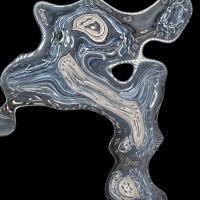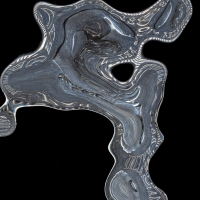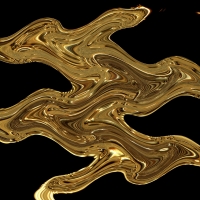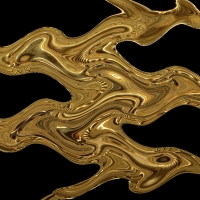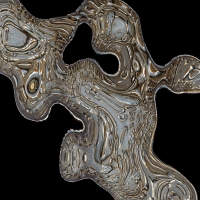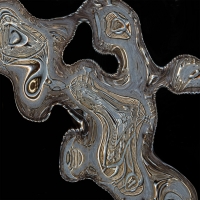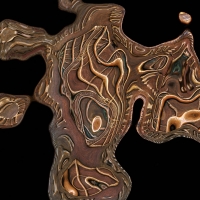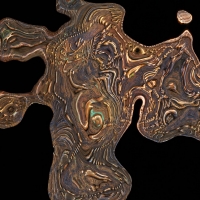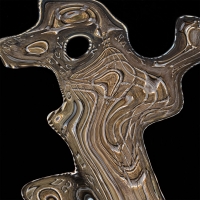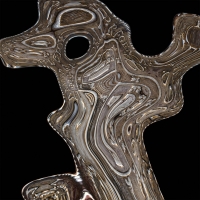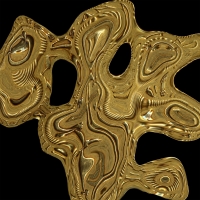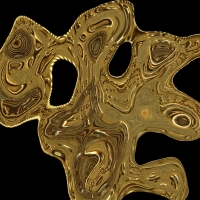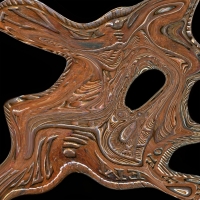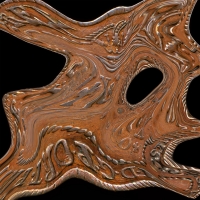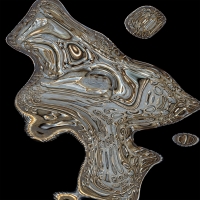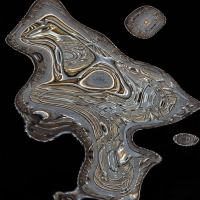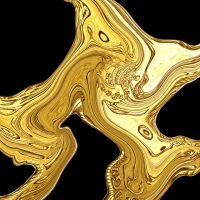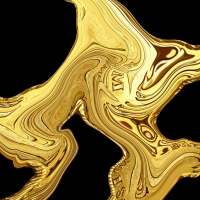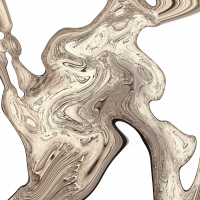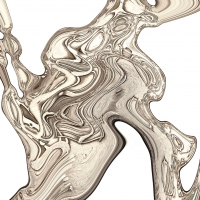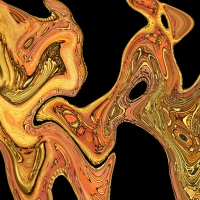About the Gongshi series
In the Gongshi series Mark Engel has developed imagery based on scanned images of Brazilian empire and monarchy coins and digitally altered them to vaguely resemble Chinese scholar’s rocks (gongshi).
“Chinese scholars’ rocks (gongshi), also known as scholar stones or viewing stones, are small naturally occurring or [man] shaped rocks which are traditionally appreciated by Chinese scholars.”
Wikipedia
“[they] are seen as embodiments of the dynamic transformational processes of nature.”
Metropolitan Museum of Art The World of Scholars’ Rocks Gardens, Studios, and Paintings
Through digital manipulation — pulling, pushing, stretching and poking the scanned image — Mark has transformed the original coins to a point of being almost non-recognizable. Almost, but not quite so. Upon closer inspection of the final images, aspects of the coins start to show themselves; ridges, numbers, letters, decorative designs. Original details become ever more present in their distortion.
This group of work relates to Mark Engel’s long-standing exploration of digital media as a means to “painting” and the use of found imagery, and found objects, as starting points in developing his final works. Much like in his previous series Hearts of Stone (1996) and Mind Candy (1996-present), Mark uses the scanner as a camera and plays with scale and context to develop new meanings; finding new relationships between abstraction, representation and symbolism. Borrowing from another series, Sweets & Treats, (1996-present), Mark integrates the use of distortion and computer generated chance, injecting the Gongshi works with an added layer of pseudo-abstraction instigating a back-and-forth between what is immediately perceived and the clues left behind.
As part of the much-lauded BRICS group (Brazil, Russia, India, China & South Africa), Brazil and China have a complex and intertwined economic relationship. The Gongshi works allude to Brazil’s current economic affiliation to China, it’s benefits and disadvantages, and, at the same time, to the historical, and oftentimes turbulent, role the Portuguese had in establishing east-west economic relations with China. Mark’s work brings to mind issues of empire building, how economic powerhouses shape each other and, as Neville Morley has elaborated in his article “Decadence as a Theory of History,” cultural and economic entropy.
